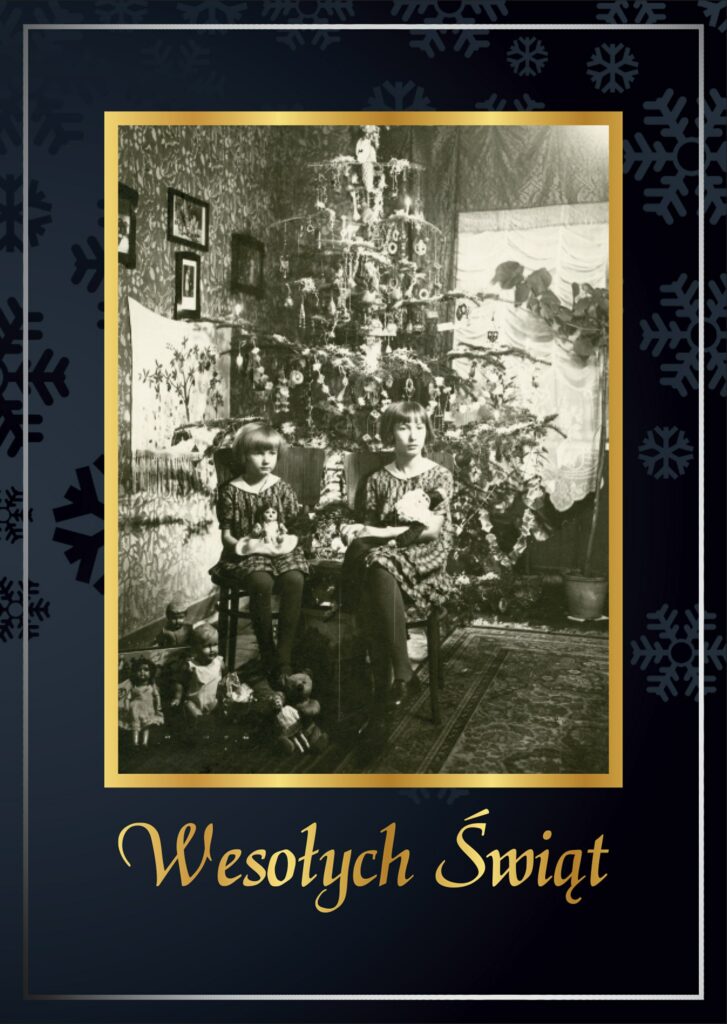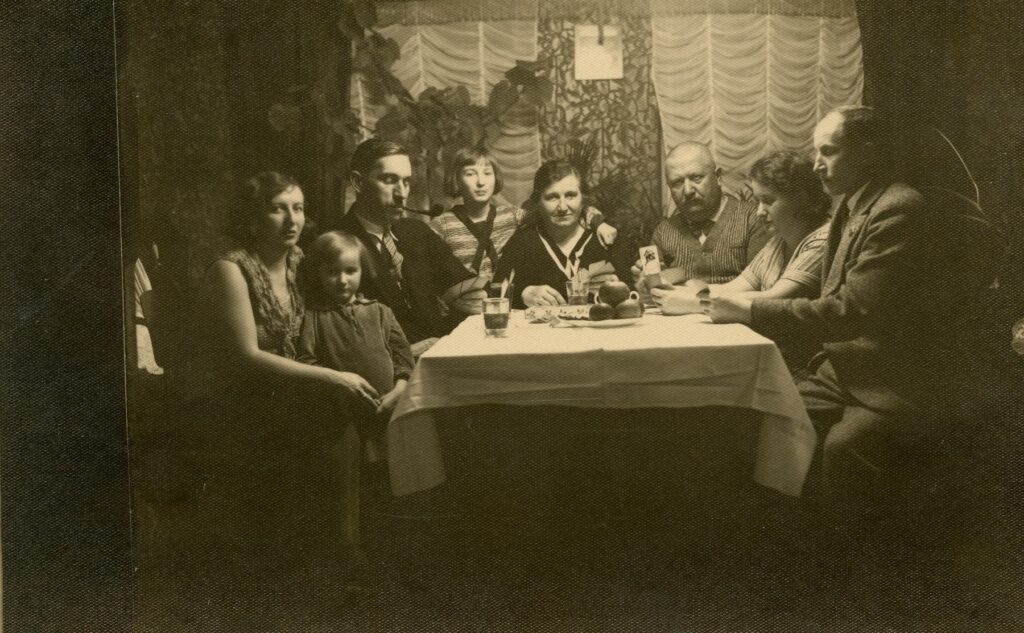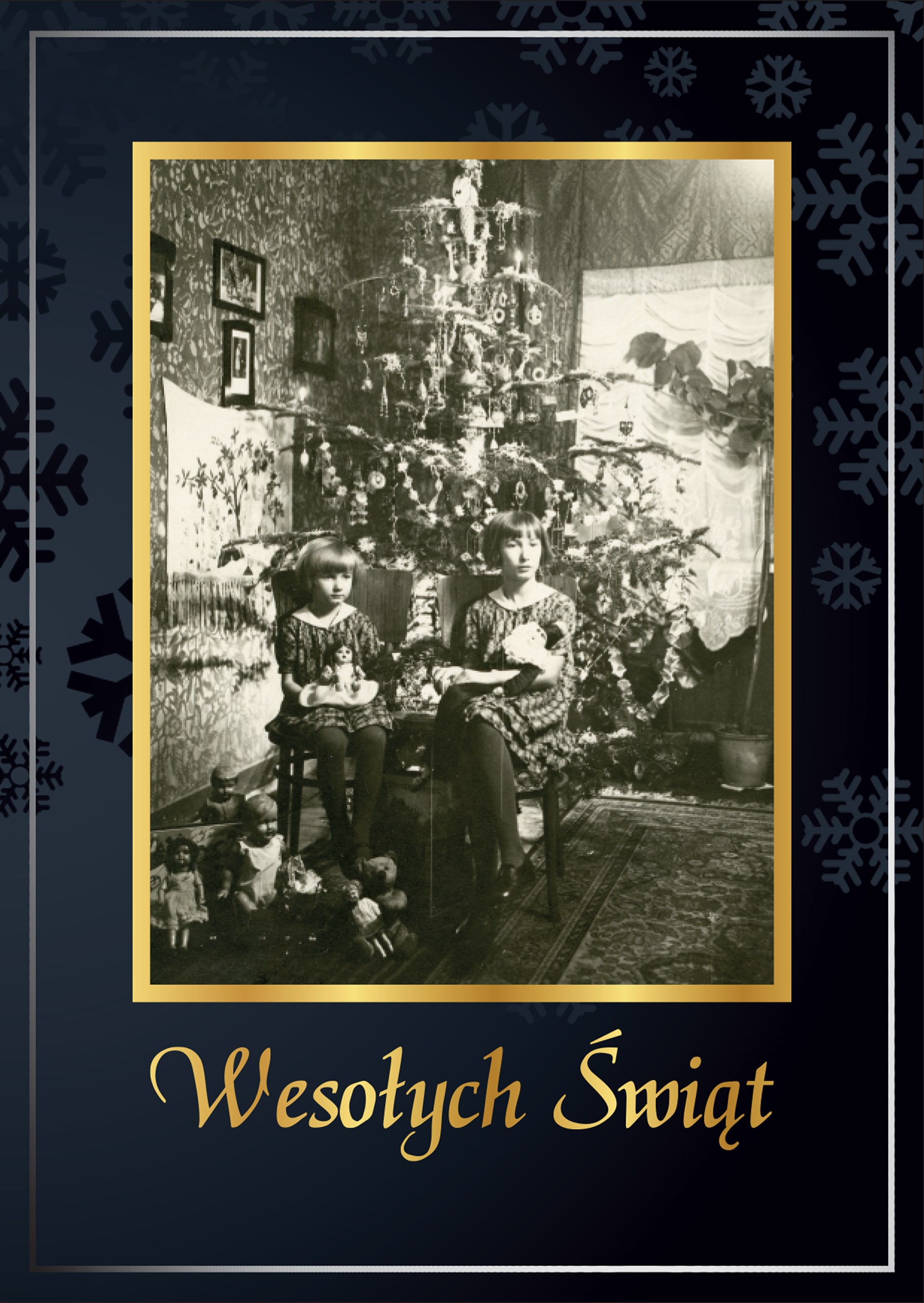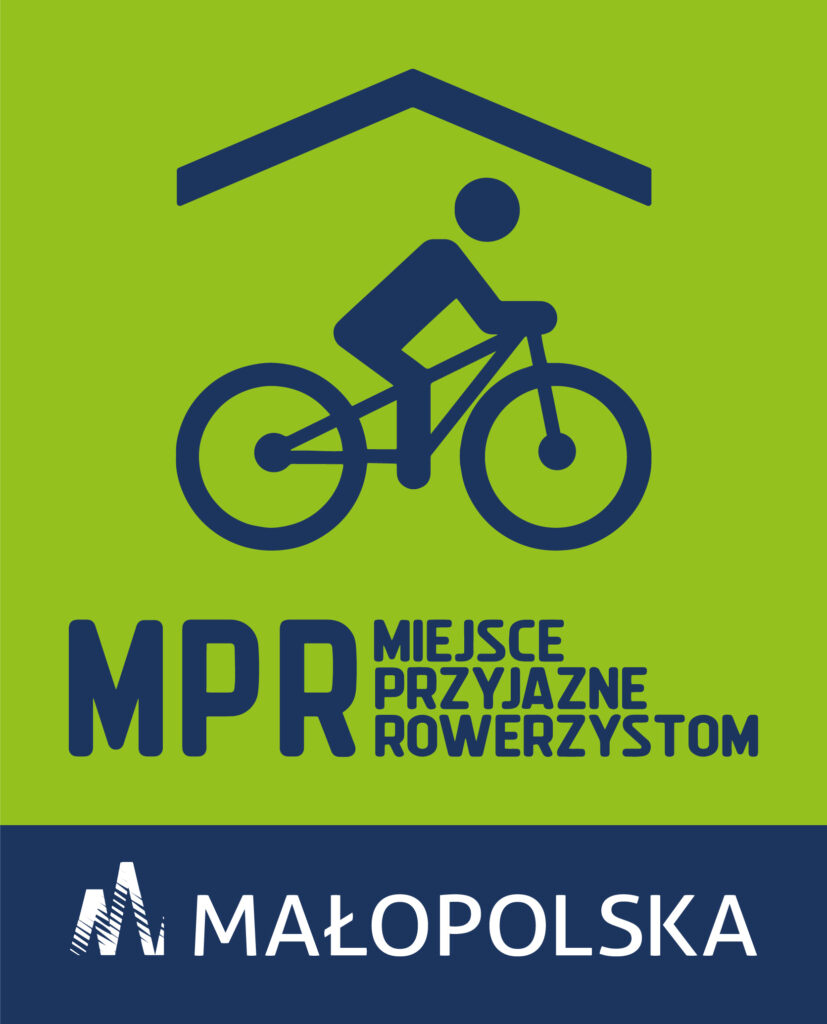Remembrance Museum Director and Staff wish you all a beautiful Christmas in joy, peace and Bethlehem’s Light in whom we can share all that is good and noble.
This year’s Christmas card from the Remembrance Museum features an unusual photo. It documents Christmas in Brzeszcze in the 1930s. Sitting by the Christmas tree are two sisters – on the left Aleksandra Bystroń next to her older sister Maria Bystroń. The photograph comes from the private archive of Kazimierz Kobiński – Maria’s son.
Maria Bystroń (married name Kobińska) was born on June 6, 1923 in Brzeszcze. Her sister Aleksandra (married name Kołodziejczyk) was born four years later – on July 26, 1927. During the German occupation, both were active in the underground – they were Union of Armed Struggle/ Home Army couriers.
As Henryk Świebocki writes in People of Good Will, Aleksandra Bystroń, who worked above ground in the office (checking in and out workers) of Brzeszcze-Jawischowitz mine, became so involved in helping the Jews of Jawischowitz Concentration Camp that she was dubbed “Judentante” (Jewish aunt). As a token of her gratitude for the help she rendered, she received, among other things, a basket made by the inmates from wire and inscribed “Olga-1944.” It has survived to this day and is one of the family’s precious heirlooms.
Sabina Senkowska, in a text dedicated to Aleksandra Kołodziejczyk (“Odgłosy Brzeszcz” No. 8 August 2004), describes the circumstances under which Ola was called “Judentante”:
“One day she saw an SS man beating one of the prisoners while handing out marks. It was a Jew of Belgian origin. She could not watch this. She then dared to call the commander of the Jawischowitz sub-camp, Kowol, and asked him to intervene in the case of the abused prisoner. – I further indicated that if he didn’t help, I wouldn’t add any day’s pay on the reports in the future when they were missing from the accounts,” says Mrs. Kołodziejczyk. The blackmail worked. Kowol ordered the prisoner to be brought to the office. Her courageous intervention saved his life. It was on this occasion that Kapo Franz Duda sarcastically called her ‘Judentante’, that is Jewish aunt. Today, almost sixty years after those events, she emphasizes that she was and is proud of this epithet.”
Here we must also mention the Bystroń house of Brzeszcze surveying engineer Mieczysław Romanowski and his wife Maria, where the prisoners were fed. The Romanowski and Bystroń families also helped pass on secret messages and organized meetings with prisoners’ families. Pawel Bystroń was Mieczysław’s son-in-law, and Maria and Aleksandra were his daughters-in-law.
Maria died on December 20, 1981, while Aleksandra died on September 16, 2016. Both rest in the family tomb in the cemetery in Brzeszcze.



Photos: Resources of the Museum of Remembrance of Land of Oświęcim Residents /private archive of Kazimierz Kobiński.






